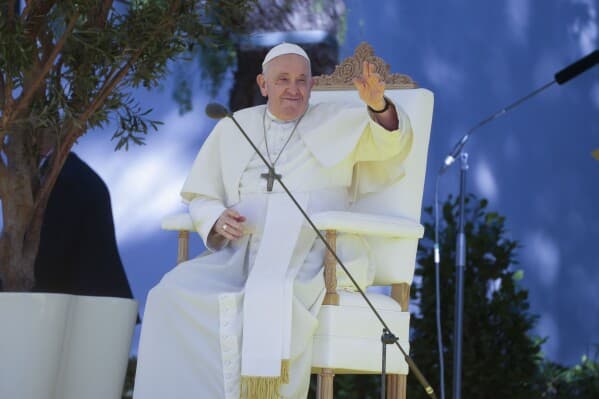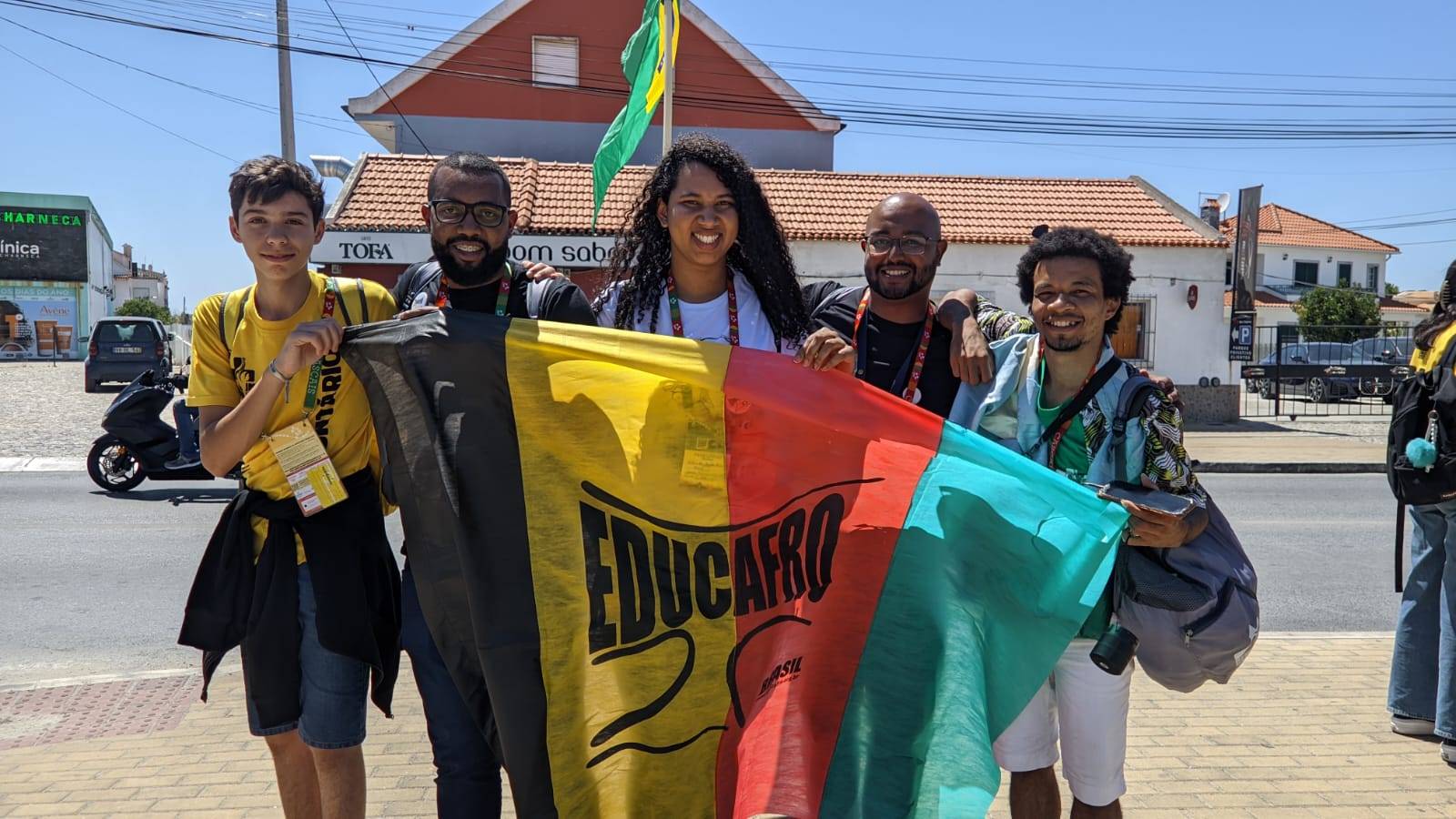LISBON –Pope Francis met Thursday with young people involved in an organization he established personally in Buenos Aires, telling them that moments of difficulty in life can be healthy and urging them to be compassionate.
After a meeting in Lisbon with Catholic university students earlier Thursday morning, Pope Francis met with young people involved with Scholas Occurentes, a pet project of Pope Francis which he established while Archbishop of Buenos Aires to build “bridges of dialogue and encounter” in schools around the world through culture, sports, and technology.
During the brief session, the pope took questions from three youths who asked about the meaning of Scholas and how to handle moments of crisis.
In his responses, Francis said Scholas “teaches you the way to go forward” in life and amounts to a “walking encounter” distinguished by respect for others, which he said is not “static respect, but a dynamic respect,” a respect he said that knows how to walk with others.
Asked how to handle moments of crisis, the pope said crises are normal and healthy, and that “a life without crisis is an aseptic life… a life without crisis is like stagnant water, it’s not good for anything, it doesn’t taste of anything.”
He stressed the importance of friendship and health relationships with others, saying, “Crisis makes you walk, and rarely alone,” he said, and told the youth to face their crises together “and go forth, at least to have a feijoad,” which is a traditional Portuguese stew.
Referring to the biblical account of creation, Francis jested that he did not want to be a catechist, but recounted the story of creation in the Bible, which he said shows how God created the cosmos from chaos.
“That’s the journey of each person,” he said, saying, “a life that stays in the chaotic fails, and the life that never felt chaos is distilled – everything is perfect – and distilled lives don’t give life.”
He also, after receiving a painting of the biblical parable of the Good Samaritan, offered a brief lesson on the narrative, saying the higher classes and even a priest walked by the wounded man on the road, not wanting assist for fear of being made “impure” by touching his blood, whereas the Samaritan man “had compassion” and treated the wounded man’s wounds.
“How many times does it pass through our head, ‘die, but I won’t be made impure,’ how many times does is ritual purity preferred over human closeness?” he said, challenging the youths to question their own actions.
Pope Francis offered a small prayer and heard a song before concluding his morning activities. This afternoon, he will participate in the official welcome ceremony for the August 1-6 World Youth Day in Lisbon, which is expected to draw as many as two million participants by the end.

















